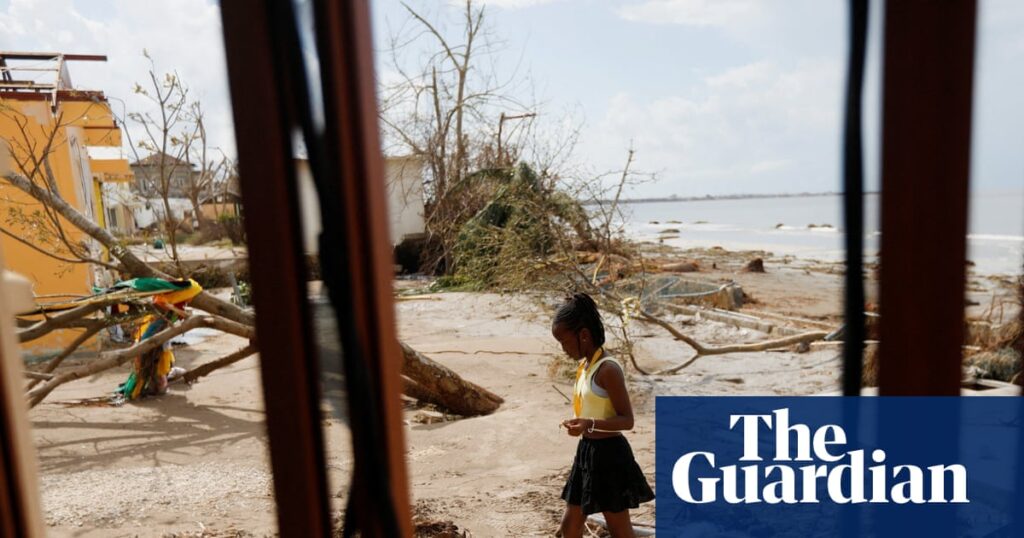The death toll from Hurricane Melissa has reached 49 as the storm continued to tear through the Caribbean, heading past Bermuda, and workers in Jamaica ramped up efforts to clear roads and reach people in isolated and cut-off areas.
In Haiti, the death toll has risen to 30, with another 20 missing, the civil defence agency said on Thursday. A further 20 people were injured, it added.
“It is a sad moment for the country,” said Laurent Saint-Cyr, the head of the transitional presidential council of Haiti, the Caribbean’s most populous nation.
In Jamaica, the death toll rose to 19 but search and rescue efforts were continuing, said the information minister, Dana Morris Dixon. The island’s toll had earlier been four.
Tropical storm conditions were occurring on Bermuda late on Thursday, as the category 2 storm moved past the western side of the territory, packing maximum sustained winds of 100mph (155km/h). The storm is moving in a north-easterly direction at a speed of 38mph (61km/h)
Residents in Bermuda had remained calm as the storm was expected to give the island a relatively wide berth. Authorities said they would close its causeway Thursday night and shut schools and ferries on Friday “out of an abundance of caution”.
Kingston, Jamaica’s capital, was spared the worst damage and the main international airport has reopened to allow flights carrying critical aid to land. Officials said some towns were underwater and power lines and mobile network towers were down in much of the south-west.
“The devastation is enormous,” said the transport minister, Daryl Vaz.
Jamaica was hit first and hardest this week when Melissa made landfall on Tuesday. It was the country’s strongest hurricane since records began in 1851. The storm carried sustained winds of 185mph, far above the minimum for a category 5 storm, the strongest classification for hurricanes.
The British government said on Thursday that it was chartering flights to the island. “The Foreign, Commonwealth and Development Office has chartered a limited number of flights from Jamaica for British nationals who are unable to fly home commercially,” it said in a statement.
Hurricane Melissa has been intensely destructive, estimated to have caused billions of dollars, but accurate forecasting and government advice meant many people who were able to reach shelters were protected.
In eastern Cuba, authorities had evacuated about 735,000 people from their homes as the storm approached. It hit on Wednesday and by Thursday there was no official estimate of the damage and no deaths had been reported there.
Photos from Santiago de Cuba, the province in the south-east where the storm passed over, showed people surrounded by tree branches and debris.
Across the Bahamas archipelago, which Melissa has now passed, the government had flown out nearly 1,500 people in one of its largest evacuation operations.
Despite losing some power, Melissa was still carrying winds of close to 105 miles an hour (165kph), according to the US National Hurricane Center, downgraded to a category 2 storm but still a hurricane.
About 700 miles north-east of the storm’s position on Thursday, Bermudians prepared for its approach, expected by the evening local time. The hurricane is expected to significantly weaken on Friday.


